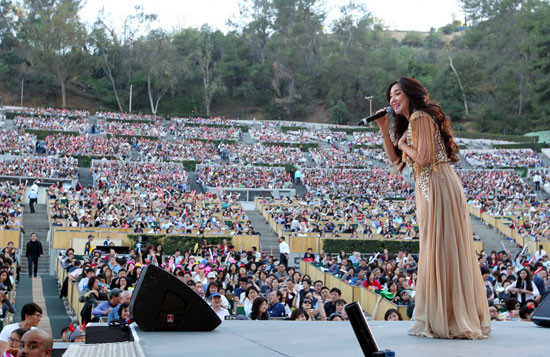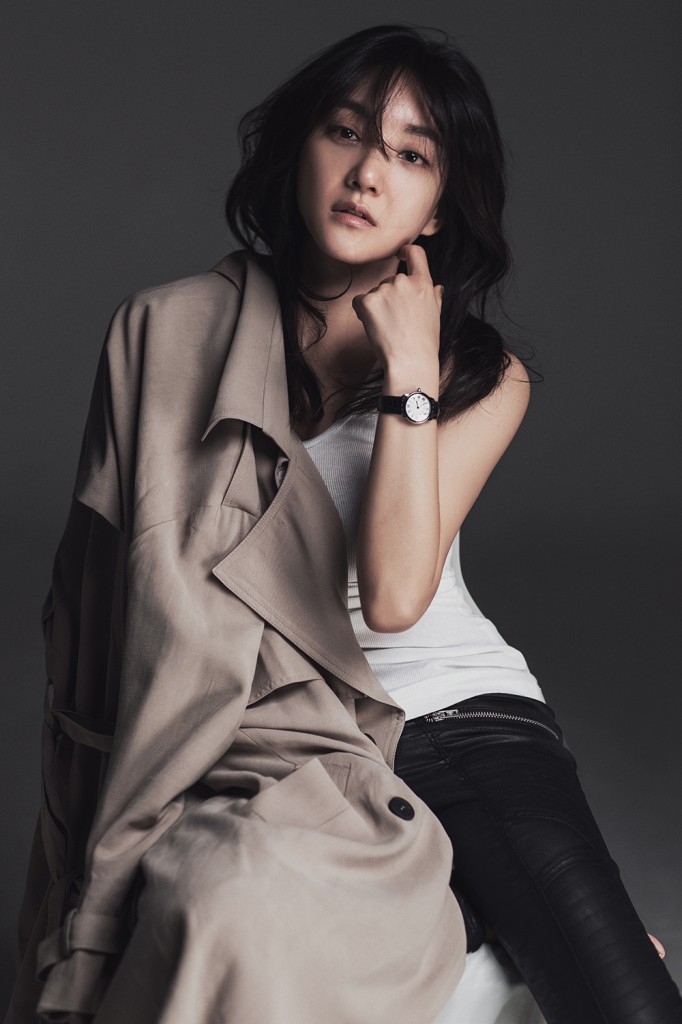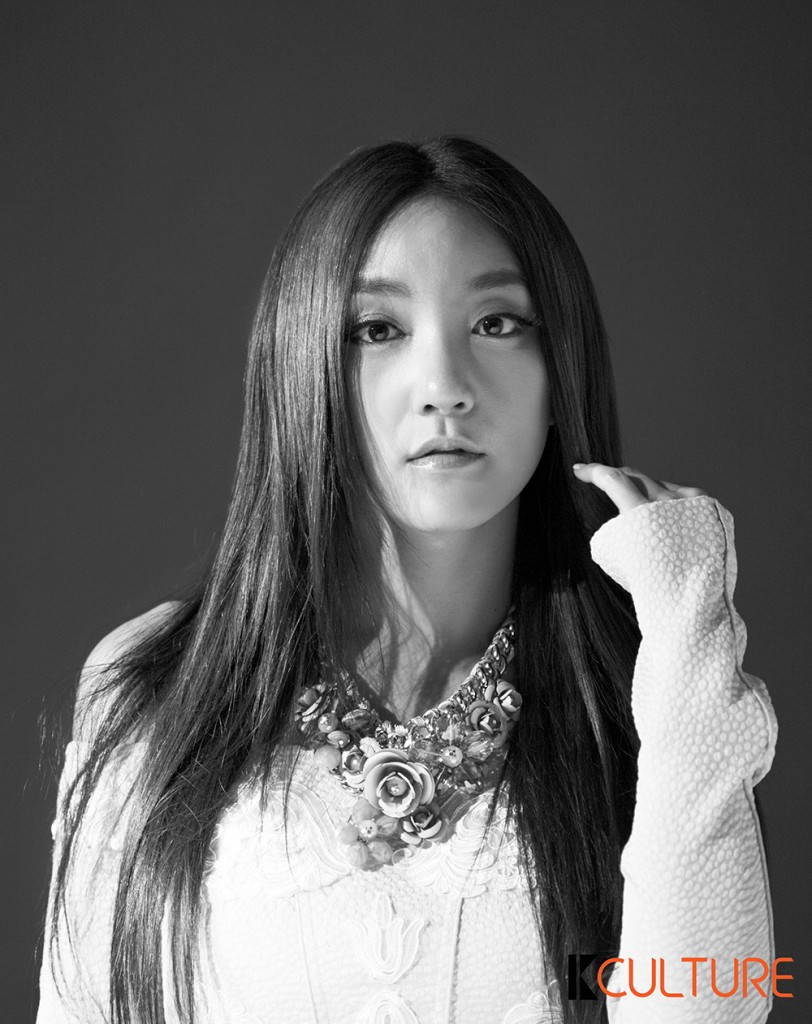- California Assembly OKs highest minimum wage in nation
- S. Korea unveils first graphic cigarette warnings
- US joins with South Korea, Japan in bid to deter North Korea
- LPGA golfer Chun In-gee finally back in action
- S. Korea won’t be top seed in final World Cup qualification round
- US men’s soccer misses 2nd straight Olympics
- US back on track in qualifying with 4-0 win over Guatemala
- High-intensity workout injuries spawn cottage industry
- CDC expands range of Zika mosquitoes into parts of Northeast
- Who knew? ‘The Walking Dead’ is helping families connect
[Exclusive] Interview: Bada, 17 years later
By Tae Hong
In the 17 years since Bada’s debut as the leader of S.E.S., largely credited as modern K-pop’s first girl group, a lot has happened to Korean music — and to her.
It was partly S.E.S.’s success hot on the trails of H.O.T. dominance, after all, that led a rocked K-pop industry toward an idol-producing model that would go on to help expose South Korean culture to the rest of the world like never before.
That Bada, the group’s powerhouse vocal, would continue her singing career even after their split was never a question. What did become one, both among fans and the masses, was why, with so much promise and such name recognition, she fell behind on the charts as a solo act starting in 2003, and why she failed to top the industry.
But perhaps it was no failure.
Ever consistent in her delivery, Bada has managed to carve out a place for herself where few have: as one of the industry’s best live performers and vocal talents, whether it be through the musical stage (she was the first-ever idol to venture toward musical theater; in 2009, she was honored with a Best Actress award), concerts (an upcoming Seoul solo series, “The Ocean,” is headed toward fans at the end of this month) and television (she’s stunned viewers enough to pick up five winning trophies on KBS’s “Immortal Songs 2”).
For all of that, it had to be the hard path, not the easy one.
As the 35-year-old K-pop veteran tells the Korea Times during her recent trip to Los Angeles to perform at the Hollywood Bowl, life is about the challenges. Where would the fun be without them?
-
Korea Times: This is your first time back in Los Angeles in a long while.
Bada: I think about 10 years. I haven’t been here since I came here to work on my first solo album.
-
KT: Is there anything in particular you want to do while you’re here?
Bada: I’m planning on writing the lyrics to the song I’ll be releasing this summer. It’s a mini album. I’ve received the song already — I want to write the lyrics to it on Malibu beach.
-
KT: Since you left S.E.S., you’ve tried a diverse set of genres through your albums. At the same time, both your fans and music industry critics have been vocal about the lack of mass appeal in those releases. How different will the summer song be?
Bada: That was me in my 20s. I was exhausted, and looking to fill a void, and wanted to do something, anything. I wasn’t looking to focus on mass appeal with my albums. I did all the different genres I wanted to do, from the unique to the difficult. Now, because I did all of that, I can understand the depth of what it means for music to have mass appeal. It’s no light thing. It’s the kind of music that brings people together. After doing the sort of music that not many do, I actually came to love popular, mass-appeal music. I think, if I had followed the trend during my 20s, I wouldn’t know the value of that.
KT: Your musical choices helped you grow as an artist.
Bada: Even everyone around me would ask why I didn’t take the easy route. But I tried a lot of things in my 20s, failed at a lot of things in my 20s. Now, after all of it, after trying those different genres, I can work with a relaxed mind. Because I tried a different path, I can walk on this one. Doing that non-mainstream music made me strong. I no longer have fears about music.
KT: Fears?
Bada: I don’t feel the need to prove myself anymore. I just want to do the music I want to do, the kind of music people can enjoy. I don’t know, maybe this new song doesn’t have as much mass appeal as I think it does. (laugh) We’ll see.
-

Bada performs at the Hollywood Bowl for the 13th Korea Times Music Festival May 2, 2015. (Korea Times)
KT: Let’s talk about motivation. Where does yours come from? What has kept you going all these years, and what will keep you going forward?
Bada: You know, I’m Catholic. I believe God put me here and has not yet taken me back for a reason. There are definitely more popular celebrities than me, but as long as I’m in this position as a celebrity, I want people to enjoy watching me on stage. I’m no longer bound by a concept — sexy, diva, idol. And I no longer have that kind of popularity, either. But I have passion and energy, and I want people to feel happy when they see me performing, whether it’s in musical theater or as a singer.
KT: You’re a famously energetic performer.
Bada: I’ve read a lot of reviews about my performances online. When I see people saying they received energy from me, that they got a sense of, “I also want to live my life trying my best as she looks to be,” then I’m happy. It’s that sense of transferring my mentality of wanting to challenge myself to the audience. You know, life is no fun without challenges.
-
KT: You mentioned values earlier. Tell me about the values you hold close.
Bada: I think sometimes, what is my role in society? I don’t have my own family right now. Within society, what I have is my job. I had a concert at Jamsil Baseball Stadium recently, and a lot of the crowd were in their 20s and 30s. I didn’t expect that.
And I read the reviews. One high school junior said she’s a fan of Infinite and had never been to a non-Infinite concert before. She said what she received from watching me was different from what she gets from watching her idols, and that I helped her blow away stress. That’s valuable to me. To see someone posting on Instagram about seeing me perform, being motivated to take their life in a new direction because I sparked their sense of challenge, that makes me happy. Doing that has become my life goal.
-
KT: You’re also a musical actress, and one who’s been seen more on the theater stage and less on music programs as a pop singer in recent years. Are you conscious of keeping a balance between the two jobs?
Bada: I don’t think about keeping balance in a particular way. It’s important, to be sure, but I pick up projects as they come. Of course, I can’t let the road to one completely disappear so that I can’t find it again — those roads were difficult to find, and are both precious to me. But my goal isn’t balance. It’s about natural progression, and about doing good projects.
KT: I’m sure fans will be excited about the summer mini album.
Bada: The reason I’m doing this summer song is actually because I’m conscious of not having released an album in so long, that balance. I’m also doing it because I want to spend the summer together with my fans.
I considered focusing on album activities, but, you know, with that comes a burden on promoting heavily via broadcast. It’s not that I don’t want to, but in this broadcasting landscape, there are a lot of places for idols to stand, and doing PR for new releases has become an end, not a means. I was worried about that. But now, I think a lot of those worries have gone for me. When I finally release an album, I’ll do it, to strike that balance.
-
KT: You’re in your mid-30s now. When we first met you, you were young, an 18-year-old who’d just debuted as the leader of S.E.S. What would Bada say to the young Choi Sunghee (her real name)?
Bada: Thank you for working hard to do well.
KT: Any advice?
Bada: It’s not all about the immediate and the now. Think slowly, rest a tempo. You won’t get motion sickness if you see something from afar, but when you’re too close, that’s when it gets you. Be calm. That’s what life is like. I knew that lesson for a long time, but it wasn’t until I hit my mid-30s that it actually hit home. The things that I could have enjoyed more by being grateful, I passed as burdensome and heavy when I was in my 20s. My advice to myself? It’s OK to be more grateful in your daily life, and it’s OK to be happier, to be more appreciative of the things around you.
KT: That’s good advice for any young person, I think.
Bada: I spent my 20s like that, too. Things I could have just let be, I didn’t. I thought too hard about simple things. There was no need to hold on so tight to certain things. I kept a daily journal during my 20s. I still have them. I wrote about the same issues, every single day. You know, that’s what I want to do in my future concerts. I want to give young people advice, and share my experience.
KT: What would you tell them?
Bada: I’ve been feeling very grateful lately, and I think it comes from the lightness I’ve found in enjoying what I think is my destiny. As you know, there are not many idols from the first generation who are still active. They didn’t disappear because they lacked talent. It was about opportunity, and for me, I think this road I’ve taken is where I’m supposed to be. I’d tell them I, too, didn’t know where I was going, even in my 20s.
-
KT: And being back here in L.A., how does it feel?
Bada: I came here a lot with Eugene and Shoo as S.E.S., but I hadn’t had a chance to come back as a solo artist. There’s something exciting about this city to me, and it holds a lot of memories. This is a place where I faced a challenge, too, and where that challenge resulted in a precious experience.
When I was preparing for my first album, I recorded all the songs here besides the title track, for three months. I did the entire chorus, back vocals, everything. There must have been thousands, maybe 10,000, individual recordings. The recordings got lost. Without much time, I came back to re-record in half the time — when I told Patti Kim this story, she told me she herself wouldn’t have come back. But the fact that I didn’t avoid the problem, that I tried my best, that means a lot to me.
Trying times like that have piled up to bring me to where I am now. So being back in Los Angeles brings back those memories of that time, when I was young and worked very hard. I want to come back again, next time with the S.E.S. members. It’s my wish, to do a concert here one day as S.E.S.


















Pingback: Benefit concerts for disabled to bring singer Bada to SoCal – The Korea Times
David
September 19, 2015 at 9:05 PM
I just want to say I saw her live at the charity consert yesterday! And wow! She is shuch a special artist! Shuch a joy and privilege to have been able to see her live! “Dreams do come true”! Can’t wait to see her come back with Shoo and Eugene! Long live Bada! And go s.e.s go!